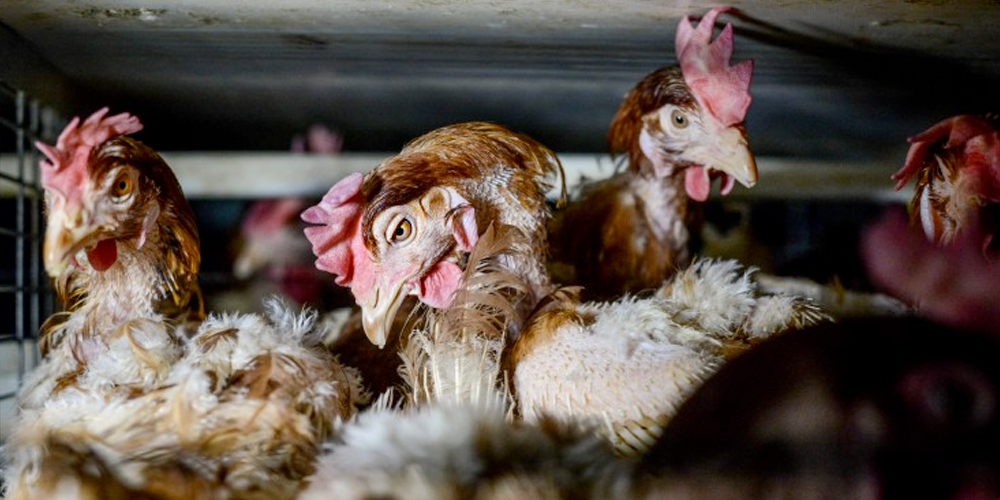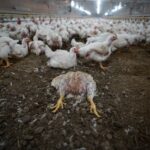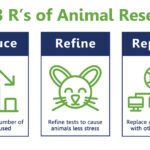Chickens are often seen as mere commodities in the modern agricultural landscape, yet they possess a complex emotional and social life that many fail to recognize. As the backbone of the poultry industry, chickens are raised primarily for their meat and eggs. However, this raises an important question: is chicken farming inherently cruel? To explore this notion, we must delve into the multifaceted layers of chicken farming practices, welfare standards, and the physiological and psychological ramifications inflicted on these birds.
At the crux of this debate lies the expansive scale of industrial chicken farming. The sheer number of chickens raised for consumption worldwide is staggering, with billions of birds produced annually. A significant proportion of these chickens are confined in large-scale factory farms, where conditions can be appalling. The challenge that arises here is whether such massive operations can maintain a level of animal welfare that meets ethical standards. As the industry prioritizes efficiency and profit margins, the well-being of the chickens often becomes marginalized.
In traditional farming contexts, chickens had more freedom to engage in natural behaviors, such as roaming, foraging, and dust bathing. However, the modern industrial farming model largely operates on the basis of confinement. Broilers, or meat chickens, are bred to grow exceptionally fast, often to the point of physical strain. They are typically housed in overcrowded barns with limited space to move. This reality poses a dire question: can any farming system truly claim to be humane, when the animals involved are systematically deprived of their most basic needs?
The conditions to which chickens are subjected can lead to a range of health issues. Many chickens in these environments suffer from skeletal malformations, respiratory problems, and heart disease due to their accelerated growth rates. These ailments can cause unnecessary suffering, leading one to wonder about the consequences of prioritizing production over well-being. The issue of mortality in chicken farming is also alarming, as high-density environments can lead to the rapid spread of disease, resulting in staggering losses among the flocks.
Furthermore, the psychological implications of intensive farming cannot be overlooked. Chickens are highly social animals that thrive in a complex social hierarchy. In confinement settings, their natural behaviors are stunted, leading to increased stress and aggression within flocks. This environment can provoke behaviors such as feather pecking or cannibalism, further exacerbating their suffering. The paradox emerges: as the industry attempts to create more efficient farming practices, it inadvertently creates conditions that undermine the very health and stability of the animals.
Is it possible to reconcile the demands of a growing population with the ethical treatment of chickens? Some proponents of sustainable farming argue for the importance of pasture-raised or free-range systems as viable alternatives to conventional practices. These systems provide chickens with more space, access to the outdoors, and opportunities to engage in natural behaviors. While these methods are certainly an improvement compared to traditional factory farming, they still raise questions about the scalability and overall effectiveness of such practices in a global context.
This leads to another critical point: consumer accountability. People have a choice in the marketplace. By demanding ethically sourced chicken and supporting humane farming practices, consumers can influence industry standards. The rise of certifications like Certified Humane and Animal Welfare Approved reflects a growing awareness among consumers regarding animal welfare. However, the challenge remains, as clearly defined regulations and standards can vary, leading to confusion in product labeling.
Moreover, one must consider the environmental impact of chicken farming. Intensive poultry farming not only raises ethical concerns but also poses significant threats to ecological balance. The reliance on antibiotic use in crowded conditions raises alarms about antibiotic resistance. Additionally, waste management practices in large-scale operations can contribute to pollution and habitat degradation. Thus, the motivations for ethical and environmentally conscious approaches align, creating a compelling case for a shift in farming practices as a whole.
To add another layer of complexity, consider the role that technology plays in chicken farming. Innovations such as automated feeding systems, climate-controlled housing, and health monitoring are emerging in response to the welfare challenges posed by intensive practices. While these advancements may offer some improvements in animal husbandry, they also prompt a reevaluation of our relationship with livestock. Is technology a facilitator of compassion, or does it serve merely as a means to perpetuate a system of exploitation?
In conclusion, the question of whether chicken farming is inherently cruel cannot be answered with a simple yes or no. The realities of industrial chicken farming expose numerous ethical dilemmas that require nuanced consideration. While some practices may claim to prioritize animal welfare, the broader systemic issues of the industry often supersede these attempts. Ultimately, addressing the concerns surrounding chicken farming involves a dual approach of consumer responsibility and advocating for more humane practices. The road to achieving a balance between humane poultry production and meeting global demands is fraught with challenges, yet it is a path worth pursuing for the sake of both animal welfare and collective conscience.






